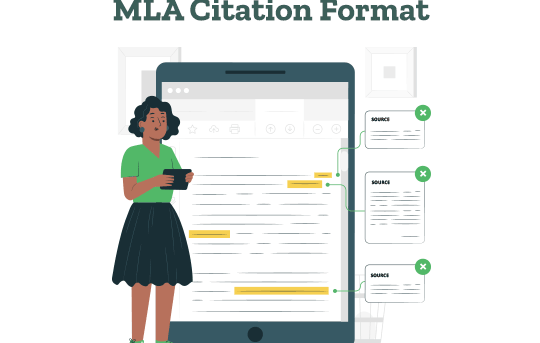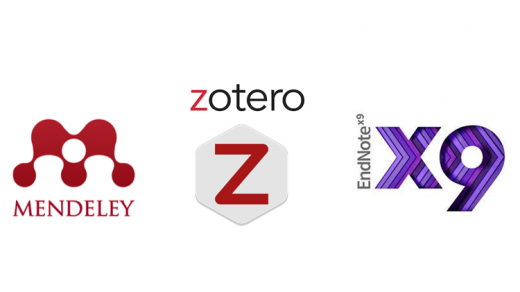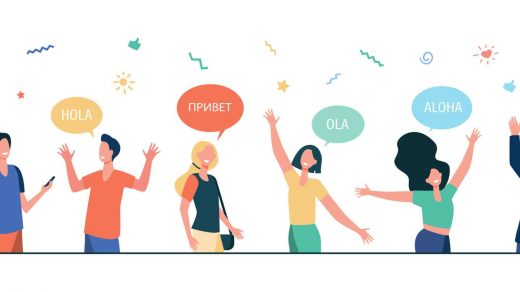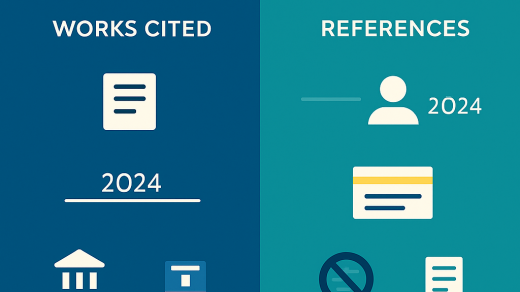In the modern research landscape, information does not come only from books, peer-reviewed journals, or academic databases. Increasingly, knowledge emerges from digital communities—spaces where users collaborate, discuss, debate, and build shared understanding. Platforms like Reddit, Wikipedia, Stack Exchange, and other crowdsourced forums have become integral to how people access, interpret, and generate information.
Yet for students, researchers, and writers, these sources pose a unique challenge: how do we cite them responsibly? While the Modern Language Association (MLA) offers flexible guidelines for digital materials, the dynamic and collaborative nature of these platforms complicates traditional citation rules. Posts can be edited, deleted, or contributed to by multiple users; authorship is often collective or anonymous; and content is constantly evolving.
This essay provides a step-by-step guide to citing crowdsourced knowledge in MLA style. It explores the ethical and practical questions of using such sources, examines the reliability of community-driven data, and offers examples that clarify how to balance accessibility, credibility, and academic rigor in a digital age.
Crowdsourced Knowledge in the Information Era
Crowdsourced platforms are a defining feature of 21st-century knowledge production. Unlike traditional publishing models, where information flows from experts to readers, platforms like Reddit and Wikipedia are participatory ecosystems where users generate and refine content together.
Wikipedia: The Collaborative Encyclopedia
Since its founding in 2001, Wikipedia has become one of the most visited websites in the world, offering over six million English-language articles. It embodies the principle of “collective intelligence”—the idea that large groups of people can produce reliable knowledge through collaboration and peer moderation. Despite concerns about accuracy, numerous studies have shown that well-monitored Wikipedia articles rival traditional encyclopedias in factual reliability, especially for general reference.
However, Wikipedia’s fluid authorship—anyone can edit, revise, or revert—means that citations must reference not just the article, but its specific version and date. Failing to do so risks citing information that might change later.
Reddit and Discussion-Based Sources
Reddit, often called “the front page of the internet,” operates as a network of user-created forums (“subreddits”) organized around shared interests. Discussions often feature expert insights, personal experiences, and real-time data. For instance, a post on r/AskHistorians might contain detailed, well-researched responses from academics, while threads on r/DataIsBeautiful provide visualized datasets curated by users.
However, Reddit is not peer-reviewed, and contributions vary in quality. Therefore, while it can serve as contextual or cultural evidence, it should be cited transparently, with attention to author credibility and the post’s permanence.
Community-Based Data Sources
Platforms such as Stack Overflow (for coding), OpenStreetMap (for geography), or Kaggle (for datasets) exemplify how crowdsourcing can produce structured, reliable data. When citing these, clarity about contributors, timestamps, and access links is essential.
The Ethics and Challenges of Citing Crowdsourced Sources
Before learning how to cite these resources, writers must understand when and why it is appropriate to use them. Ethical citation involves not just giving credit but also acknowledging limitations.
Reliability and Verification
The open nature of crowdsourced platforms invites both collective accuracy and collective error. Contributors may be biased, underinformed, or even intentionally misleading. Therefore, before citing, one should verify claims through secondary, authoritative sources whenever possible.
That said, crowdsourced content can offer unique insights unavailable elsewhere—especially in emerging or niche topics where traditional literature is limited. For example, Reddit discussions may reveal public attitudes toward new technologies, while Wikipedia can serve as a gateway to reliable references listed at the bottom of its pages.
Authorship and Attribution
A core principle of MLA style is proper attribution. Yet what happens when the author is a username or “Anonymous”? In such cases, the MLA Handbook (9th edition) advises to cite the name as it appears online, even if it is a pseudonym, since it functions as the identifiable author in that context.
Permanence and Version Control
Unlike static print materials, online posts can be modified or removed. Therefore, always include the full URL and date of access in your citation. For Wikipedia, it’s best to cite the specific revision URL, not the general article page, ensuring that readers can locate the exact version referenced.
MLA Citation Guidelines for Crowdsourced Sources
The MLA format is flexible enough to accommodate evolving media forms. The key is to identify four main components for every source:
-
Author – Who created the content (individual or collective)?
-
Title – What is the name of the post, article, or page?
-
Container – Where does it appear (platform name, subreddit, website)?
-
Location – What is the direct URL or digital identifier?
Let’s examine how these apply to the most common crowdsourced platforms.
Citing Wikipedia in MLA Style
Wikipedia is typically used for background research, but if cited directly, the entry must include the article title, the website name, the date of last revision (or access), and the permanent URL of the version consulted.
Format:
“Article Title.” Wikipedia, Wikimedia Foundation, Last Modified Date, URL. Accessed Day Month Year.
Example:
“Machine Learning.” Wikipedia, Wikimedia Foundation, 18 July 2024, en.wikipedia.org/w/index.php?title=Machine_learning&oldid=1183458327. Accessed 10 Oct. 2025.
This citation specifies the exact version ID, ensuring future readers view the same content that was referenced.
Citing Reddit Discussions
Citing a Reddit thread or comment requires identifying the username, the post title, the subreddit, the date, and the URL. If no author is visible, omit the author and begin with the title.
Format:
Username. “Title of Post.” Reddit, Date, URL. Accessed Day Month Year.
Example:
u/Historiophile. “Why Was the Roman Empire So Resilient Despite Frequent Political Crises?” Reddit, 3 Mar. 2025, www.reddit.com/r/AskHistorians/comments/18hf12t/why_was_roman_empire_resilient. Accessed 20 Mar. 2025.
If citing a specific comment rather than the entire thread, you may include the phrase “Comment on” before the thread title:
u/ScienceTeacher87. Comment on “How Does Quantum Entanglement Work?” Reddit, 12 Apr. 2025, www.reddit.com/r/askscience/comments/19abf56/comment/kp4g89s. Accessed 16 Apr. 2025.
Citing Other Crowdsourced Platforms
For Stack Exchange, which includes specialized communities (e.g., Mathematics Stack Exchange, Stack Overflow), the citation structure mirrors that of Reddit.
Format:
Username. “Title of Question or Post.” Platform Name, Date, URL. Accessed Day Month Year.
Example:
user47289. “How Do You Prove the Limit of (sin x)/x as x Approaches 0?” Mathematics Stack Exchange, 6 May 2025, math.stackexchange.com/questions/1058943. Accessed 7 May 2025.
For datasets or maps collaboratively created (e.g., OpenStreetMap), include the collective organization as the author.
OpenStreetMap Contributors. “Map of Central Lisbon.” OpenStreetMap, 2025, www.openstreetmap.org/#map=13/38.7167/-9.1333. Accessed 12 May 2025.
Comparative Overview: MLA Citation Formats
| Platform | Example Source Type | Author Field | Title | Container | Key Notes |
|---|---|---|---|---|---|
| Wikipedia | Encyclopedia entry | Article title in quotes | “Machine Learning” | Wikipedia | Always cite specific revision URL |
| Discussion post | Username (e.g., u/Historiophile) | Post title | Include subreddit if relevant | ||
| Stack Exchange | Q&A forum post | Username | Post or question title | Stack Overflow / Math Stack Exchange | Include access date |
| Kaggle | Dataset | Dataset creator(s) | Dataset title | Kaggle | Treat like online source |
| OpenStreetMap | Collaborative map | OpenStreetMap Contributors | Map name | OpenStreetMap | Cite URL and access date |
Responsible Integration of Crowdsourced Material
Citing properly is only half the task. Equally important is how you integrate these sources into your argument.
1. Use as Supplementary, Not Primary Evidence
Crowdsourced content should rarely serve as the central basis for academic claims. Instead, it works best as contextual or illustrative support—to show public discourse, trends, or examples of collective reasoning.
For example, a sociology paper on digital democracy might reference a Reddit thread to demonstrate how citizens debate civic issues online, but rely on scholarly sources for theoretical grounding.
2. Provide Context for Readers
Because not all readers may be familiar with online communities, it’s good practice to introduce the platform briefly before citing. For instance:
“In a discussion thread from r/AskScience, where scientists respond to public questions, one user explains…”
This helps situate the citation within a credible framework.
3. Acknowledge Source Limitations
Transparency strengthens credibility. When citing Reddit or Wikipedia, note that the material is user-generated and potentially mutable. For instance:
“While this explanation from r/AskHistorians offers insight into current interpretations of Roman law, it reflects individual user expertise rather than peer-reviewed scholarship.”
This acknowledgment models academic integrity while still allowing inclusion of valuable insights.
Why Proper Citation of Crowdsourced Knowledge Matters
The academic world has long been skeptical of user-generated content. However, the boundaries between expert and amateur knowledge are increasingly blurred. A computer scientist posting on Stack Overflow may be more authoritative in practice than a peer-reviewed paper on an outdated topic. Similarly, Wikipedia’s collective editing model can correct errors faster than many traditional publishers.
Proper MLA citation of these sources serves three purposes:
-
Transparency – Readers can trace your sources and assess their credibility.
-
Acknowledgment – Even pseudonymous contributors deserve recognition for their intellectual labor.
-
Ethical Engagement – Citing responsibly teaches respect for collective knowledge and digital literacy.
Moreover, by including access dates and revision links, citations preserve a snapshot of digital history—a record of how knowledge looked at a specific time.
The Future of Citation in the Age of Collective Intelligence
As AI tools, community forums, and open-source data evolve, citation practices will continue to adapt. The MLA Handbook already acknowledges that “digital authorship is fluid,” urging writers to use judgment in identifying relevant details.
Future frameworks may incorporate persistent identifiers (PIDs) or blockchain verification to track edits and authorship across platforms. Crowdsourced platforms themselves could implement automated citation metadata, making it easier for users to generate accurate references.
Ultimately, the goal is not merely to standardize how we cite the internet, but to rethink what counts as credible knowledge. If information is created collectively, then perhaps citation, too, must become more dynamic—reflecting collaboration rather than hierarchy.
Conclusion: From Citation to Digital Citizenship
Citing Reddit, Wikipedia, or community-based data is not just a matter of formatting; it is a matter of intellectual ethics and digital citizenship. It reflects our awareness that the creation of knowledge today is participatory, iterative, and global.
By learning how to reference these spaces properly, we acknowledge the value of collaborative intelligence while maintaining scholarly discipline. As the boundaries between academic and public knowledge continue to blur, MLA citation remains a bridge — connecting the rigor of tradition with the creativity of the digital world.
In this sense, the act of citation becomes more than a technical detail; it becomes an expression of respect for shared understanding, an invitation to dialogue, and a commitment to transparency in the evolving ecosystem of online knowledge.




